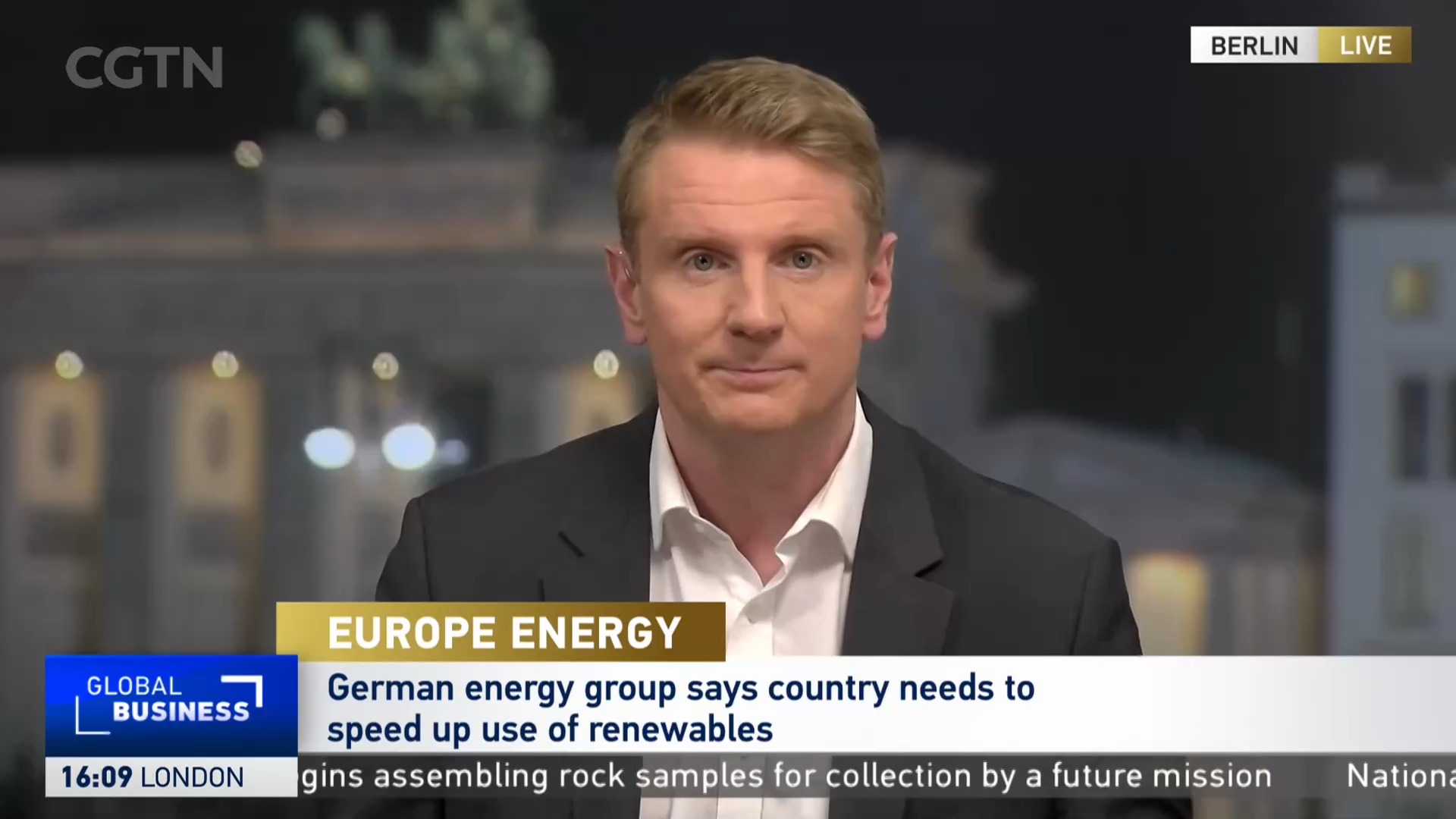03:29

Renewable energy is on the rise in Germany. Forty seven percent of electricity used in 2022 has come from green sources, up from 42 percent the previous year.
This was one of the big announcements by the Federal Association of Energy and Water Management (BDEW) on Tuesday.
That is promising for Berlin's bid to hit its climate goals, but it also comes alongside a rise in the use of lignite and hard coal, which shot up from a 28.3 percent share of energy usage to 31.9 percent.
Coal has had to be used to produce electricity, as Germany looks to save on the amount of gas used due to the reduction in gas supplies from Russia.
That increase in coal use has seen Germany's CO2 emissions from the energy sector rise slightly after years of steady decline.
Chair of the BDEW Executive Board, Kerstin Andreae, told journalists: "Of course, this development is a step backwards for the climate.
"We have to do everything we can to get back on track as quickly as possible. We need more speed in the expansion of renewable energies, in the expansion and conversion of the grids, in the development of a hydrogen market."
Since the start of the conflict in Ukraine, Germany has been trying to decouple its energy reliance on Russia. The aim of the Government in Berlin was to reduce the use of natural gas by 20 percent in 2022. The country managed 14.8 percent.
The amount of Russian gas Germany used in 2022 dropped from 55 percent to 20 percent of the amount consumed.

Power-generating windmill turbines near the island of Amrum, Germany./ Morris Mac Matzen/Reuters
Power-generating windmill turbines near the island of Amrum, Germany./ Morris Mac Matzen/Reuters
However, keeping the power flowing is proving very expensive for Germany. According to calculations by Reuters, Berlin has spent or set aside around half a trillion dollars to avoid the lights going out and to keep supplies coming.
A total of $465 billion is the figure Reuters comes to, just over $5,730 for each German citizen.
Stefan Kooths, vice president and research director of business cycles and growth at the Kiel Institute for the World Economy, said: "The German economy is now in a very critical phase because the future of energy supply is more uncertain than ever.
"Where does the German economy stand? If we look at price inflation, it has a high fever."
The partnership between Germany and France on energy received a boost on Tuesday. Berlin and Paris have a deal that sees the former send the latter electricity while receiving gas in return.
The French power grid operator RTE has announced the risk of blackouts in France has been dramatically reduced because of the availability of power from nuclear and hydropower.
RTE also announced there had been a nine percent reduction in the demand for power across France. The government in Paris has urged households to cut their power usage by 10 percent.